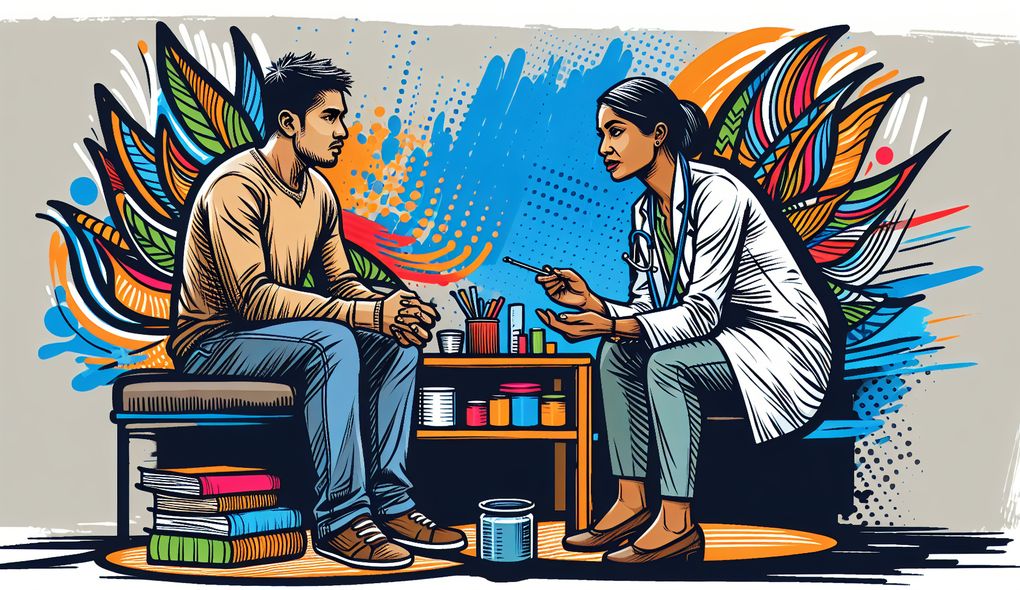How do you educate clients on coping mechanisms and tools to maintain sobriety?
JUNIOR LEVEL

Sample answer to the question:
When educating clients on coping mechanisms and tools to maintain sobriety, I start by establishing a trusting and supportive relationship. I take the time to listen to their concerns and understand their unique needs. Then, I provide them with information about various coping mechanisms, such as mindfulness techniques, stress management strategies, and healthy lifestyle choices. I also teach them about the importance of building a strong support network and how to effectively communicate their needs to their loved ones. Additionally, I introduce them to resources like support groups and online forums where they can connect with others who are going through similar challenges. By being patient, empathetic, and providing ongoing guidance, I ensure that clients have the necessary tools to maintain their sobriety.
Here is a more solid answer:
When working with clients to educate them on coping mechanisms and tools for maintaining sobriety, I prioritize building a strong rapport based on trust and empathy. I begin by conducting a thorough assessment of each client's specific needs, addiction history, and existing support systems. Based on this assessment, I develop individualized treatment plans that include a range of coping mechanisms, such as mindfulness techniques, cognitive-behavioral strategies, and self-care practices. I also emphasize the importance of healthy lifestyle choices, such as regular exercise and balanced nutrition, in supporting overall well-being and sobriety. Additionally, I educate clients on the benefits of seeking support from others who have faced similar challenges, such as attending support group meetings or engaging with online recovery communities. By providing comprehensive education, ongoing support, and access to resources, I empower clients to navigate the journey of sobriety with confidence and resilience.
Why is this a more solid answer?
The solid answer expands on the basic answer by providing specific details about the candidate's approach to educating clients on coping mechanisms and tools for maintaining sobriety. It highlights the importance of building rapport and conducting thorough assessments to address the unique needs of each client. The answer also includes examples of coping mechanisms, such as mindfulness techniques and cognitive-behavioral strategies, and emphasizes the importance of healthy lifestyle choices. Additionally, it mentions the benefits of seeking support from others and engaging with recovery communities. However, it could be improved by providing more specific examples and discussing the candidate's knowledge of addiction treatment modalities.
An example of a exceptional answer:
In my role as a Substance Abuse Counselor, educating clients on coping mechanisms and tools to maintain sobriety is a multifaceted process. I believe in taking a holistic approach that addresses not only the client's substance abuse issues but also their underlying psychological and emotional needs. To begin, I establish a strong therapeutic alliance built on empathy, active listening, and non-judgmental support. I conduct comprehensive assessments to identify the client's strengths, triggers, and areas of growth. This enables me to tailor individualized treatment plans that incorporate evidence-based practices and proven techniques. Some of the coping mechanisms I introduce include cognitive-behavioral therapy, motivational interviewing, and mindfulness-based stress reduction. I also focus on helping clients develop healthy coping skills, such as stress management, effective communication, and problem-solving. Throughout the process, I ensure that clients have access to a robust support system by connecting them with support groups, community resources, and peer recovery coaches. By continually evaluating progress, adjusting treatment plans, and providing ongoing education, I empower clients to not only achieve sobriety but also thrive in their recovery journey.
Why is this an exceptional answer?
The exceptional answer goes above and beyond by providing a thorough description of the candidate's approach to educating clients on coping mechanisms and tools to maintain sobriety. It emphasizes the importance of a holistic approach that addresses the client's psychological and emotional needs. The answer also includes specific examples of evidence-based practices, such as cognitive-behavioral therapy and motivational interviewing, and highlights the importance of healthy coping skills. Additionally, it mentions the candidate's focus on evaluating progress and adjusting treatment plans, as well as connecting clients with support groups and community resources. This answer showcases the candidate's extensive knowledge and expertise in the field of substance abuse counseling.
How to prepare for this question:
- Familiarize yourself with evidence-based practices and treatment modalities for addiction and substance abuse.
- Gain a solid understanding of the importance of empathy, active listening, and building rapport with clients.
- Research various coping mechanisms and tools that can help individuals maintain sobriety, such as mindfulness techniques, cognitive-behavioral strategies, and stress management skills.
- Learn about the benefits of support groups, online communities, and other resources that can provide additional support to clients.
- Consider examples from your past experiences where you successfully educated clients on coping mechanisms and tools for maintaining sobriety. Be prepared to discuss these examples during the interview.
What are interviewers evaluating with this question?
- Empathy
- Communication
- Education
- Support
- Knowledge of addiction

